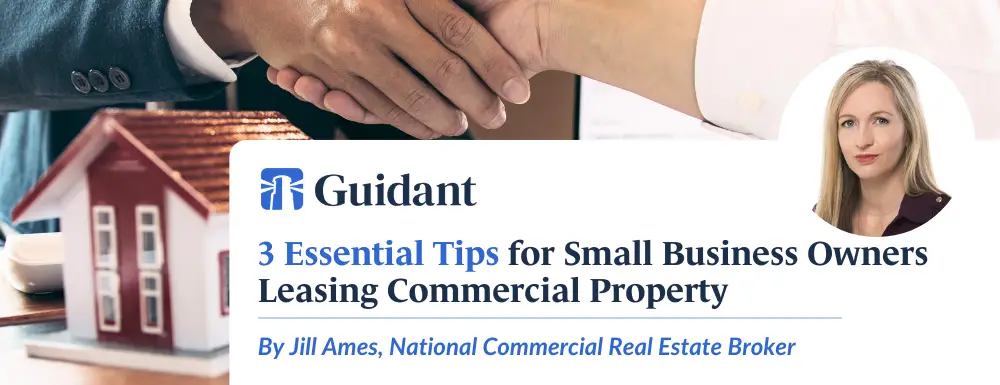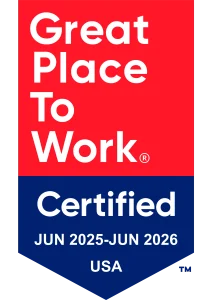Securing the right commercial property lease is crucial for small business owners looking to ensure stability and avoid conflicts with landlords. Jill Ames, a Commercial Real Estate Broker with over twenty years of experience, specializes in helping both newcomers and veteran entrepreneurs manage their property leases effectively. In this article, Jill provides insights based on her extensive field experience. She outlines strategic advice aimed at empowering business owners to secure favorable lease terms, protect their interests, and foster a positive landlord-tenant relationship.
Imagine this: you’re a first-time to-be business owner navigating your first commercial property lease, but you don’t know where to start or what to watch out for. Here are three essential strategies and advice to help you secure the best deal possible when leasing commercial property.
1. Use an Attorney to Negotiate Leases

It’s essential to involve an attorney in lease negotiations. An attorney can provide legal advice and ensure that complex issues are thoroughly addressed and that the rental agreement terms protect the business’s future. It’s always good to have an attorney involved in negotiating the lease because they will be able to help negotiate some of those complex issues that arise with commercial leasing.
There are several reasons to have your own attorney. First, the landlord is very likely to have their own lawyer. In nearly all lease agreements and contract negotiations, having a lawyer on one side means it’s prudent to have a lawyer on the other.
Second, the type of attorney you hire matters. It’s important that the attorney is experienced in negotiating commercial real estate leases. An experienced commercial lease real estate attorney will be familiar with the market and can bring that lease agreement expertise to your favor. That comes into play with negotiating important legal points such as limits on a personal guarantee, language to protect against Landlords that don’t maintain their properties well, and other important legal lease terms. But it also matters with more complicated issues, such as your responsibility for maintenance, damage, or wear and tear to the property during and after the lease.
Third, you may wish to sell your business at some point during the lease term. You need to make sure your rights to sublease or assign are covered in the lease.
Fourth, all aspects of a lease need to be examined legally. If you are not represented by an attorney, your own review may not be sufficient to protect you from all issues that can arise in the course of a lease.
2. Have a Subordination, Non-Disturbance, and Attornment (SNDA) Clause in the Lease
One of the other strategic moves an attorney can make for you is negotiating a subordination, non-disturbance and attornment (SNDA) clause, which helps protect the business’s right to remain in the space if the property is sold or foreclosed while you’re leasing it.
From a broker perspective, in the letter of intent, we always add an SNDA clause. Without getting into the legal weeds, an SNDA clause, especially the non-disturbance portion, means that the new landlord is going to honor the lease as it was written. So the new landlord has to say, “Okay, you’re the tenant. You have a lease in place. I’ll honor that.”
Often, the new buyer will get financing, especially if it’s a large CRE project, such as a big shopping center or industrial project. A new loan will be in place if new financing is obtained. So, the existing tenants usually have to agree to subordinate their rights to the lender’s rights. You may need to sign an agreement that your rights are subordinate to the lender’s rights.
So, in an SNDA clause, the subordination is the protection for the lender, whereas the non-disturbance is protection for the tenant to remain in place under the terms of the lease.
The attornment part of the clause just means that everyone who’s a party to the lease recognizes legally who the other party is. In other words, the tenant is effectively saying, “I get it. You’re my landlord. I’ll honor the terms of the agreement.” The landlord will do the same thing for the tenant.
Without an SNDA clause in place, your small business can face risks. For example, coming out of the COVID pandemic, some landlords went into foreclosure. After a foreclosure, the rights can change. If SNDAs aren’t in place, for example, a tenant may potentially be able to walk away from a lease if a bank foreclosure event occurs. That might sometimes be nice for that tenant, right? It gives you options if you’re the tenant. You can choose to stay or choose to go. Conversely, though, you might want to be there. It could be that you’ve spent a lot of money on tenant improvements, or your customer base is really loyal to you because of your location. You don’t want to have to scramble and incur all of the expenses of a move. In short, SNDAs are really important.
3. Negotiate for a First Right to Purchase Clause

Additionally, ask your CRE Broker to negotiate for a first right to purchase clause, which can provide an opportunity to buy the property if it’s put up for sale. That offers additional security and control over the business’s location.
First right to purchase clauses are wonderful to get, if you can get them. But they’re very difficult to get. Landlords don’t give those very often. I’ve never met an owner who regretted owning their building or buying a commercial building. But I have certainly met people who regretted not buying the building when an opportunity arose. I highly recommend that small business owners with the financial and credit means aim to secure a first right to purchase clause in their lease agreements. While highly advantageous, it’s important to note that these clauses are rare and often difficult to secure.
Purchasing property, however, presents its own set of challenges, primarily due to the high costs involved. Commercial real estate (CRE) loans differ significantly from residential loans; they typically require higher down payments and come with steeper interest rates. Nevertheless, Small Business Administration (SBA) loans can be a viable option for business owners. These loans are favorable because they provide some security to lenders and can cover both hard (the real estate) and soft costs (operating capital) associated with purchasing property.
To sum up, if you have the opportunity to negotiate a first right to purchase in your lease, it’s highly beneficial despite the difficulty in obtaining it. Also, always consider the potential support SBA loans can offer when planning to purchase commercial property.
A Few Words About Potential Financing If You’re Thinking About Purchasing

Just because CRE financing tends to be a bit more expensive and complicated than residential real estate financing, it’s a good idea to know the options in case you ever want to buy property for your business.
First, SBA loans are guaranteed by a U.S. government agency, the Small Business Administration. The SBA doesn’t make the loans but guarantees them to lenders like banks and credit unions. The guarantee allows the lenders to offer better terms than they do for standard CRE loans, with lower interest rates and longer durations.
Second, there are alternatives to loans that can be worth exploring. One alternative, Rollovers for Business Start-Ups (ROBS) can utilize your own retirement funds, such as 401(k)s and traditional Individual Retirement Accounts (IRAs).
There are a couple of strong advantages to tapping your own funds rather than obtaining a loan. First, loans will always require monthly payment until they’re paid off! Debt service can be an impediment to the cash flow of your business, especially for a small or beginning one. Plus, it’s always something that you need to think about and plan for.
Second, CRE loan requirements are stringent in terms of credit history and creditworthiness. If you don’t have a strong credit score or have struggled in the past with bills or credit, it might be difficult to meet them. Your lenders will need to see at least three years’ history of financial statements (Income Statement, Cash Flow Statement and Balance Sheet) and several years forward of financial projections.
Third, CRE loans almost always require collateral and a down payment. You may be asked to put up a large sum of money as a down payment or your house or car as collateral. If you don’t want to use your business’s or your own cash as a down payment or your assets to collateralize a loan, ROBS can be a useful alternative method.
Fourth, ROBS is very flexible. It can be used in conjunction with other funding sources, such as an SBA or standard CRE loan. ROBS funds can also be used for a down payment. If you have business partners, both you and they can use ROBS, as long as you are both employed in the business. (ROBS does not allow passive investment.)
Most folks are aware that withdrawing retirement funds can subject them to taxes and a 10 percent early withdrawal penalty if you are younger than 59½. But ROBS uses a method that avoids both taxes and penalties, by rolling the funds into your company’s retirement plan. It’s good to be aware that the process is quite complicated and must meet governmental laws and requirements. But ROBS providers such as Guidant Financial have helped thousands of small businesses obtain funding, as well as advised them on optimal methods of small business funding for their sector, industry and objectives.
It can always be helpful to discuss funding methods and options with qualified advisors, just as it’s helpful and important to discuss CRE leases with a qualified lawyer and a CRE broker. Never try to play every position in your small business yourself!
Summary
Wrapping up, navigating a commercial lease can feel daunting, but with the right legal guidance, it doesn’t have to be. I always stress the importance of involving a skilled CRE Broker and attorney to handle lease negotiations. This ensures you get favorable terms and crucial protections, like the SNDA clause, which can be a lifesaver if the property changes hands.
On top of that, if you can swing it, aim for a first right to purchase clause in your lease. It’s a game changer, giving you the option to buy and take control of your business location when the opportunity arises. Remember, understanding your lease options and potential financing paths, like SBA loans and ROBS, can make all the difference in securing your business’s future in a space you love.
As an entrepreneur, business owner, and investor, Jill Ames offers a valuable perspective to her clients because she understands how critical the right location and lease are to a company’s culture, recruiting efforts, and bottom line. She helps her clients minimize business interruption and maximize ROI through strong lease negotiations, understanding of the market and utilization of space.
Jill has been in the real estate industry since 1999 and has commercial experience that includes not only tenant placement and representation, but also foreclosure auctions, condo-conversions, multi-family and commercial real estate purchase transactions. Her experience includes owning two different franchise concepts, as well as multiple real estate services companies. Jill’s experience makes her an invaluable partner in blending business needs with pragmatic commercial real estate solutions.
She helped her husband, Jeremy, find the initial office spaces that allowed his business, Guidant Financial, to grow to one of the Inc 500 fastest growing companies, which now helps launch more than 2,000 small businesses and franchises each year.



















